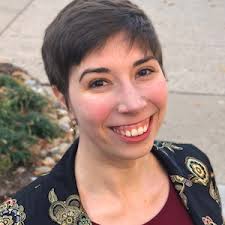My goal as an educator is to empower students and fellow teachers through skills-based training. This often takes the form of hands-on activities and learning experiences that use remediation as a vehicle for critical reflection. By translating material from one medium to another, the communities in these learning environments are better prepared to observe key features of the text and to think about how form frames this content. Reflecting on the affordances of media, particularly the limitations of a given medium, foregrounds the ethical implications of representation. In my courses and workshops, I broaden the spectrum of “texts” beyond literature to include film, drama, and visual media in order to demonstrate the flexibility of these critical thinking skills. Incorporating digital tools into hands-on activities enhances this process by transforming digital consumers into thoughtful critics and creators.
In my role as a teaching consultant, I promote student-driven learning by prioritizing learning outcomes in the lesson plans that I design in collaboration with faculty, visiting lecturers, and associate instructors. These practices are driven by educational research. In particular, I use activity theory to account for the physical setting, availability of equipment, teaching style of the primary instructor, and other features of the classroom environment. When providing in-class support for digital or analog activities, I strive to create an environment where the instructor feels as empowered as the students to experiment with their approach to the course material. Giving the instructor this hands-on experience with a new teaching technique not only increases the likelihood that they will revisit and revise the activitiy in future iterations of the course, but it also prepares faculty and graduate students to adopt digital approaches in their research.
At an institutional level, I encourage the long-term growth of learning communities by creating reusable teaching resources, leading pedagogy workshops, and developing scholarly programming.
Pedagogy and Curriculum Development Experience
Digital Pedagogy Specialist (August 2017—July 2019)
Institute for Digital Arts and Humanities, Indiana University
- Develop workshops for scholars with broad disciplinary backgrounds and skill levels
- Coordinate and lead in-class activities for History, English, and Religious studies
- Create sample data sets, step-by-step guides, and teaching materials for in-class use
- Perform educational research to refine the implementation of digital tools in classroom setting
HASTAC Program Coordinator (August 2017—Present)
Services for Digital Humanities and Creative Activities & the Institute for Digital Arts and Humanities, Indiana University
- Craft strategic plan for the program in collaboration with Tassie Gnaidy (Manager, Services for Digital Humanities and Creative Activities), Kalani Craig and Michelle Dalmau (Co-directors, IDAH)
- Create application guidelines, evaluation criteria, timeline, and applicant review workflow
- Design and impliment a modular curriculum to promote measurable progress on HASTAC projects
- Mentor individual HASTAC scholars as they build their professional portfolio
- Gather quantitative and qualitative data from scholars to idenify the program's strengths and future growth opportunities
- Facillitate dispersal of grant funds through IDAH's account
Associate Instructor of English (August 2011—May 2017)
Department of English, Indiana University
- Designed syllabi, in-class activities, and assignments for composition, professional writing, and literature courses
- Supported student growth through skills-based training
- Assessed student progress through creative assignments, critical essays, and exams
Select Workshops
Intro to Network Analysis (January 2019)
FrankensTEIn: Teaching Archival Material through Mark-up (October 2019)
The Franken-Assignment: Going Beyond the Essay (October 2019)
This is cool, but what can 3D printing do for me? (September 2019): Hosted by the Center for Excellence for Women in Technology
Material Cultures of Eighteenth-Century Privilege: Wigs, their Parts and Purposes (May 2018): Hosted by the Center for Eighteenth-Century Studies
Code with a Kid: The Circuits Edition (October 2017): Co-sponsored by Institute for Digital Arts and Humanities and the Center for Excellence for Women in Technology
Courses
Literature courses
- English L203: Introduction to Drama
- English L390: Children’s Literature (Teaching Assistant)
Composition courses
- English W131: Reading, Writing, and Inquiry
- English W231: Professional Writing
Textbook Publications
Twenty-First Century Drama: The First Ten Years. Angela Courtney, editor. Detroit: Gale Cengage Learning, 2012. Authored critical introductions to the following plays: Adventures of a Black Girl in Search of God, Afterimage, In Flagrante Gothico, The Rubenstein Kiss, wAve
